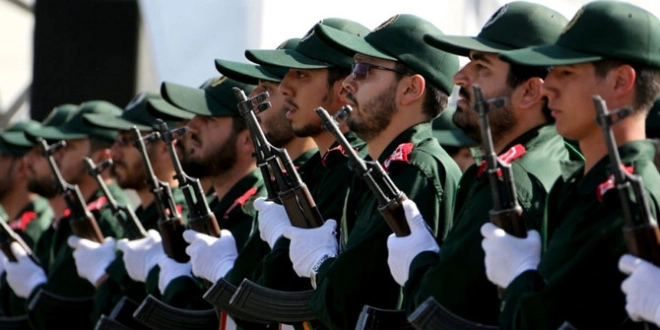Tensions between Iran and Israel escalated further on Tuesday as Iran’s Islamic Revolutionary Guard Corps (IRGC) announced it had carried out missile strikes targeting high-level Israeli intelligence facilities in Tel Aviv. The operation, according to Iranian state media, specifically aimed at the Mossad operations center and the headquarters of the Israeli Military Intelligence Directorate, Aman.
The IRGC stated that the military intelligence infrastructure of Israel was successfully hit and that fires had broken out at the targeted locations. The strike marks one of the most direct Iranian claims of an attack on Israeli territory in recent years, following a surge in mutual hostilities across the region.
The missile strikes were described as a response to a recent Israeli military campaign that targeted Iranian sites, including nuclear facilities and military compounds. That offensive, conducted under the codename “Operation Rising Lion,” was launched earlier in June and struck over 200 targets across Iranian territory. Among those affected were high-ranking military personnel and key nuclear scientists, several of whom were reported killed.
The IRGC emphasized that its Aerospace Division conducted the recent missile barrage with precision despite Israeli air defenses. Iran presented the operation as a message that it retains the capacity to strike strategic assets deep within Israeli borders in the event of future escalations.
Wider Regional and Strategic Implications
The confrontation between the two states has been intensifying since early 2025, as both sides accuse the other of breaching international norms and escalating military pressure. The strikes on Tel Aviv follow a broader pattern of military exchange, which has included cyber operations, drone attacks, and alleged covert sabotage campaigns.
Following Israel’s air campaign earlier this month, Iran retaliated with missile attacks on multiple Israeli cities, including Tel Aviv and Jerusalem. These attacks resulted in casualties and damaged infrastructure, prompting both domestic and international concerns about the potential for a broader conflict.
While no independent confirmation has emerged regarding the exact damage inflicted by the IRGC’s latest strike, the claim alone is likely to deepen the current standoff. The unprecedented nature of a direct hit on Israeli intelligence centers signals a shift toward open confrontation rather than indirect or proxy engagements.
International Response and Escalating Crisis
In the wake of these developments, international governments have begun reacting to the deteriorating security situation. Several countries have advised or facilitated the evacuation of their citizens from high-risk zones in both Israel and Iran. Among those taking precautionary action are European nations and other regional players that have economic or diplomatic ties to the conflict zones.
While some global powers have called for de-escalation and renewed diplomatic engagement, others have expressed support for one side or the other, complicating efforts to mediate a peaceful resolution. Military forces in neighboring areas, particularly in the eastern Mediterranean and the Persian Gulf, have been placed on heightened alert as the possibility of further strikes remains high.
The latest incident adds a new chapter to the long-standing enmity between the two nations, both of whom view each other as strategic threats. With military operations now targeting the nerve centers of intelligence and command, the conflict appears to be entering a new and more volatile phase. The coming days are expected to test the resilience of diplomatic channels and the readiness of each nation’s defense capabilities.


